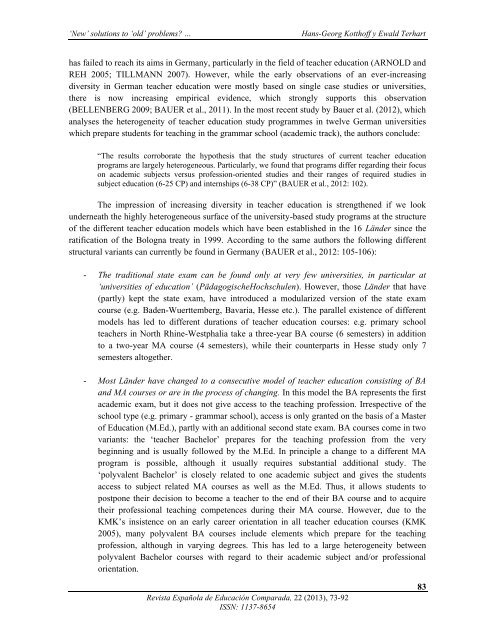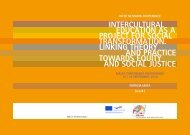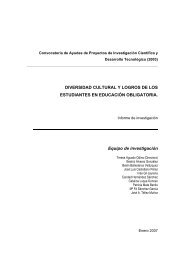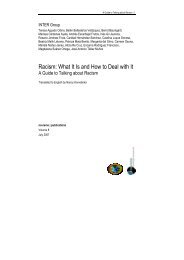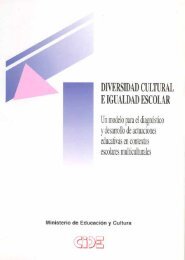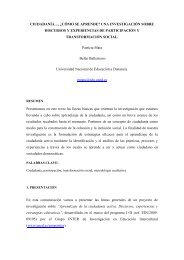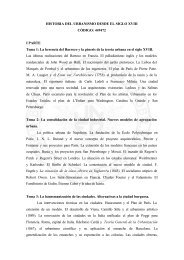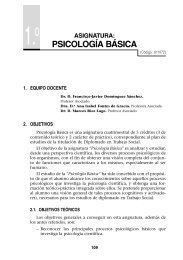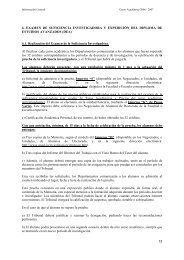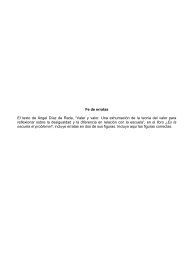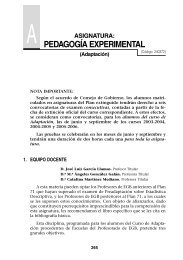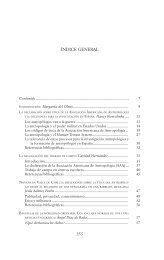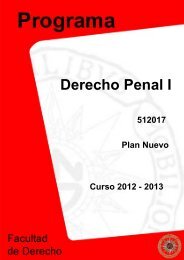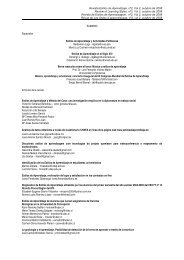'NEW' SOLUTIONS TO 'OLD' PROBLEMS? RECENT ... - UNED
'NEW' SOLUTIONS TO 'OLD' PROBLEMS? RECENT ... - UNED
'NEW' SOLUTIONS TO 'OLD' PROBLEMS? RECENT ... - UNED
Create successful ePaper yourself
Turn your PDF publications into a flip-book with our unique Google optimized e-Paper software.
‘New’ solutions to ‘old’ problems? …<br />
Hans-Georg Kotthoff y Ewald Terhart<br />
has failed to reach its aims in Germany, particularly in the field of teacher education (ARNOLD and<br />
REH 2005; TILLMANN 2007). However, while the early observations of an ever-increasing<br />
diversity in German teacher education were mostly based on single case studies or universities,<br />
there is now increasing empirical evidence, which strongly supports this observation<br />
(BELLENBERG 2009; BAUER et al., 2011). In the most recent study by Bauer et al. (2012), which<br />
analyses the heterogeneity of teacher education study programmes in twelve German universities<br />
which prepare students for teaching in the grammar school (academic track), the authors conclude:<br />
“The results corroborate the hypothesis that the study structures of current teacher education<br />
programs are largely heterogeneous. Particularly, we found that programs differ regarding their focus<br />
on academic subjects versus profession-oriented studies and their ranges of required studies in<br />
subject education (6-25 CP) and internships (6-38 CP)” (BAUER et al., 2012: 102).<br />
The impression of increasing diversity in teacher education is strengthened if we look<br />
underneath the highly heterogeneous surface of the university-based study programs at the structure<br />
of the different teacher education models which have been established in the 16 Länder since the<br />
ratification of the Bologna treaty in 1999. According to the same authors the following different<br />
structural variants can currently be found in Germany (BAUER et al., 2012: 105-106):<br />
- The traditional state exam can be found only at very few universities, in particular at<br />
‘universities of education’ (PädagogischeHochschulen). However, those Länder that have<br />
(partly) kept the state exam, have introduced a modularized version of the state exam<br />
course (e.g. Baden-Wuerttemberg, Bavaria, Hesse etc.). The parallel existence of different<br />
models has led to different durations of teacher education courses: e.g. primary school<br />
teachers in North Rhine-Westphalia take a three-year BA course (6 semesters) in addition<br />
to a two-year MA course (4 semesters), while their counterparts in Hesse study only 7<br />
semesters altogether.<br />
- Most Länder have changed to a consecutive model of teacher education consisting of BA<br />
and MA courses or are in the process of changing. In this model the BA represents the first<br />
academic exam, but it does not give access to the teaching profession. Irrespective of the<br />
school type (e.g. primary - grammar school), access is only granted on the basis of a Master<br />
of Education (M.Ed.), partly with an additional second state exam. BA courses come in two<br />
variants: the ‘teacher Bachelor’ prepares for the teaching profession from the very<br />
beginning and is usually followed by the M.Ed. In principle a change to a different MA<br />
program is possible, although it usually requires substantial additional study. The<br />
‘polyvalent Bachelor’ is closely related to one academic subject and gives the students<br />
access to subject related MA courses as well as the M.Ed. Thus, it allows students to<br />
postpone their decision to become a teacher to the end of their BA course and to acquire<br />
their professional teaching competences during their MA course. However, due to the<br />
KMK’s insistence on an early career orientation in all teacher education courses (KMK<br />
2005), many polyvalent BA courses include elements which prepare for the teaching<br />
profession, although in varying degrees. This has led to a large heterogeneity between<br />
polyvalent Bachelor courses with regard to their academic subject and/or professional<br />
orientation.<br />
Revista Española de Educación Comparada, 22 (2013), 73-92<br />
ISSN: 1137-8654<br />
83


